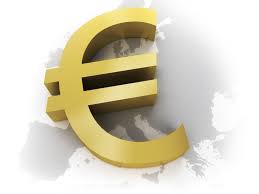
Little has been achieved nearly two years after the European Central Bank began charging banks interest on deposits. The policy sought to encourage banks to lend more, but in contrast has resulted in an increase in deposits by six-fold.
Click Here For More Market Exclusive Updates & Analysis
Slowing Lending Activity
Banks are not to be blamed entirely for the slow pace of lending activity in the trading block. People are not borrowing money as expected as recession continues to cause shivers. Banks in the midst of restructuring after years of losses are also reluctant to increase their lending capacity.
The ECB has offered to pay banks interest on money they borrow from it. Even so, the offer is not expected to do the trick in triggering lending activity. Most banks in the region are not profitable enough to bolster their lending activities as the ECB would have wished.
Lending to non-financial firms and consumers has been on a downward trend for the past four years. Lending was down by 8.5% or €627 million in 2014 compared to 2012. The decline suggests that even though the ECB is providing banks with enough funds, the same might not be enough to bolster lending.
UBS Group AG Chairman Axel Weber believes stricter regulations have played a big role in banks shying away from increasing their lending capacity.
Negative Interest Rates Impact
Negative interest rates were designed to make it easier and affordable for consumers to borrow money from banks. However, the interest that banks pay people for depositing with them cannot go negative as the same could trigger a massive wave of withdrawal.
The situation has made it impossible for banks to attain their desired profit margins as they strive to reward savers with enticing interest rates to prevent them from having to keep their cash at home. Crimping of margins by negative interest rates is the main cause of poor performance in the banking sector. The same has also had a hand in lower lending activities.
Santiago Carbo-Valverde, a finance professor at Bangor University in the UK, believes banks may start charging interest on deposits should negative interest rates persist.




